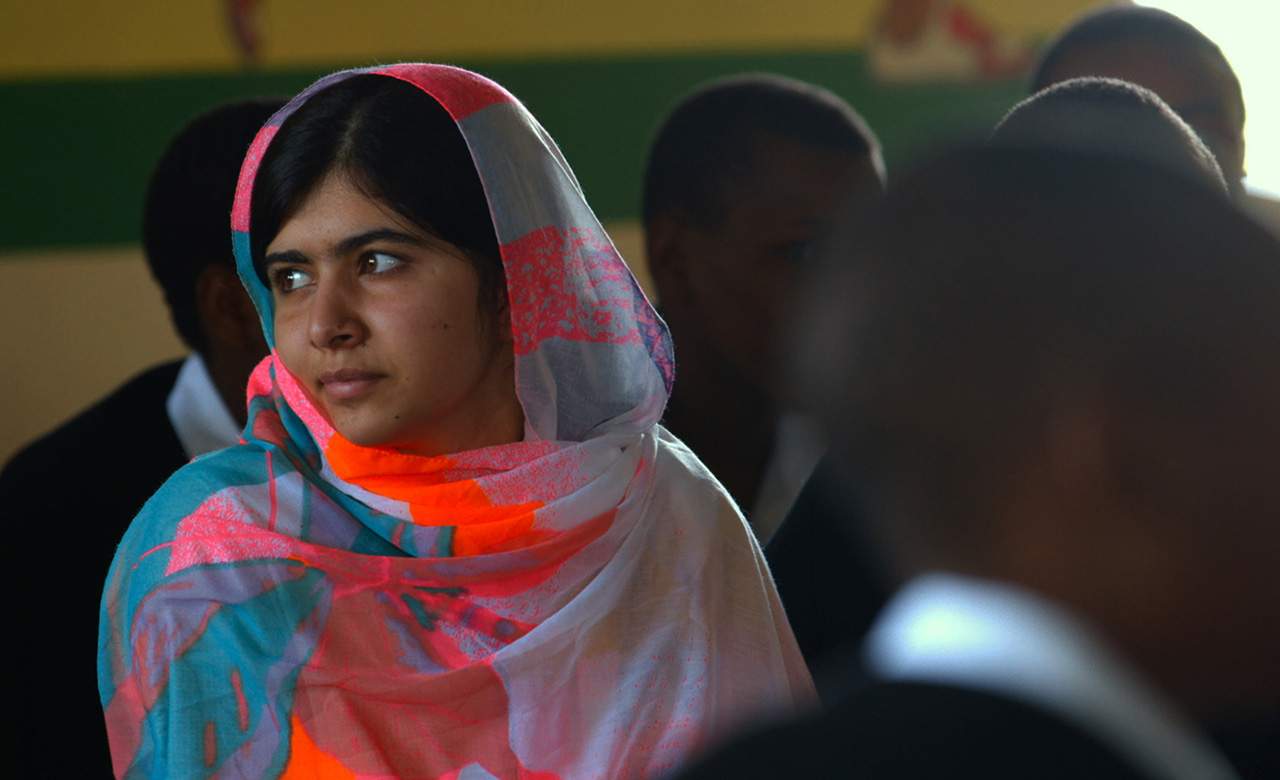He Named Me Malala
A serviceable portrait of an incredible hero.
Overview
If Malala Yousafzai's name sounds familiar, that's because she hasn't strayed far from the headlines in recent years. The Pakistani teenager turned best-selling author dared to speak out about life under Taliban rule, and to campaign for something they oppose: the education of women. In 2012, she was shot in the head aboard her school bus. However an assassination attempt didn't dampen her drive, and in 2014 she became the youngest-ever winner of the Nobel Peace Prize.
Filmed over an 18-month period and featuring interviews with Malala and her family, as well as a routine assembly of media clips, recreations and animation, He Named Me Malala tells her story. As even a brief run-through of her life and achievements indicate, hers is quite the tale. Malala hasn't just triumphed over adversity; she has refused to be terrorised into abandoning her ideals, and turned a traumatic experience into a platform for advocacy.
Alas, in the hands of An Inconvenient Truth director Davis Guggenheim, an extraordinary person inspires a merely average film . His feature finds its power in its subject, whose status and strong beliefs always remain evident. Yet even though the movie tries to peer behind everything that has already been reported, attempting to get to know Malala as a person rather than a symbol, the portrait it paints stays in standard biographical doc territory.
Accordingly, He Named Me Malala seesaws from the somewhat illuminating to the already known and oft repeated (even within the documentary itself). Much is made of her father's influence over her determined mindset and her love of learning — but while behind this impassioned crusader stands a parent who has nurtured and encouraged her, Malala is, of course, the real point of interest. She charms as much with her confident speeches to the United Nations as she does when she's explaining why she can't just go on a date.
Those charms only grow over the film's 88 minutes — again, through her presence, energy and focus, rather than through Guggenheim's filmmaking skills. He recognises the need to keep her front and centre, yet his film also plays it safe, keeping its distance and never wavering from its adoring position. And as much as the documentary might aim to show the real Malala, the most candid it ever gets is in glimpsing her looking at pictures of attractive male sportsmen.
As a result, as a fleshed-out account of a remarkable young woman, He Named Me Malala feels like it barely scratches the surface. As a functional portrait of a crucial campaign and its self-appointed spokeswoman, it fares better. Either way, one thing is certain: this won't be the last time Malala's accomplishments are memorialised and celebrated on film.






